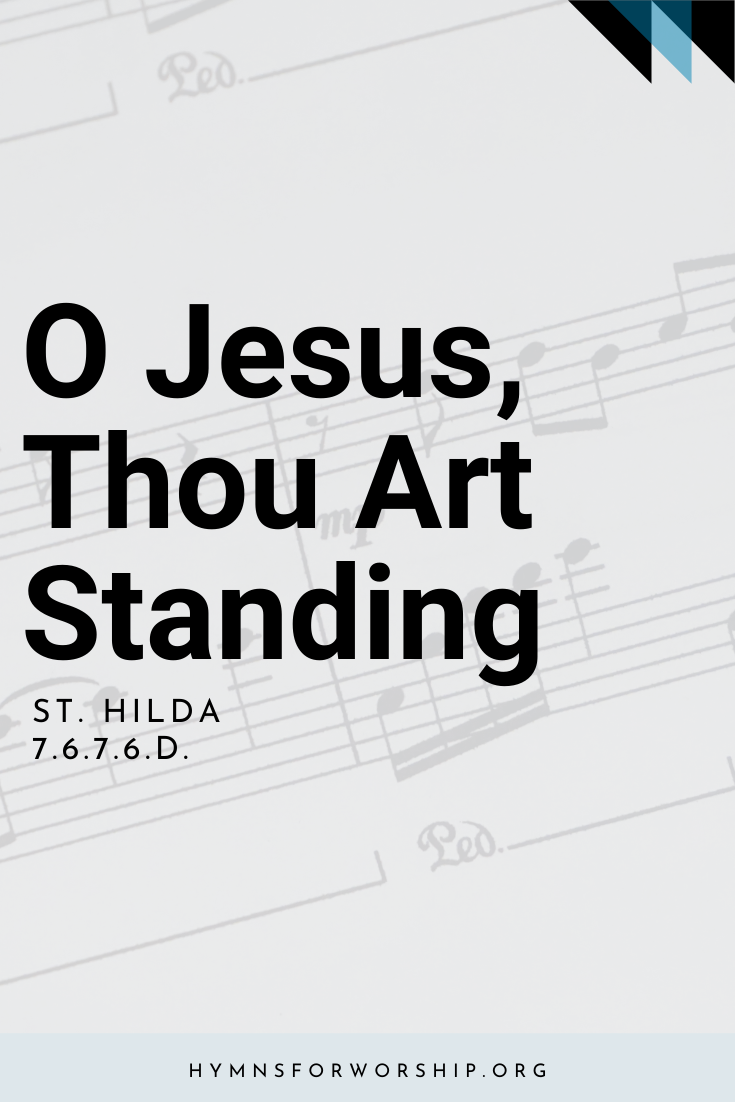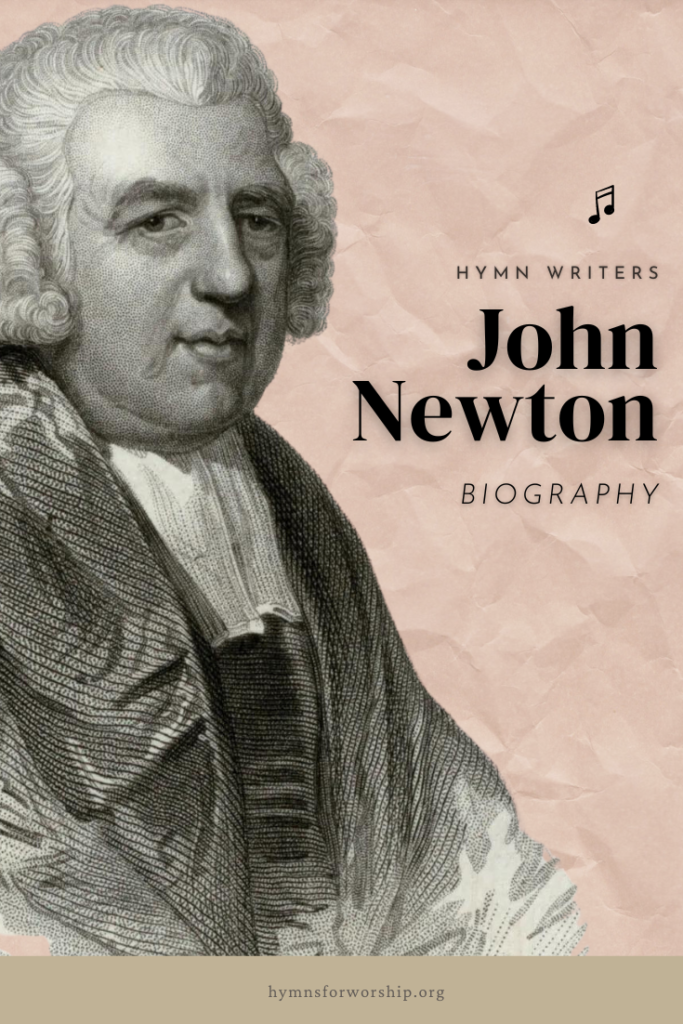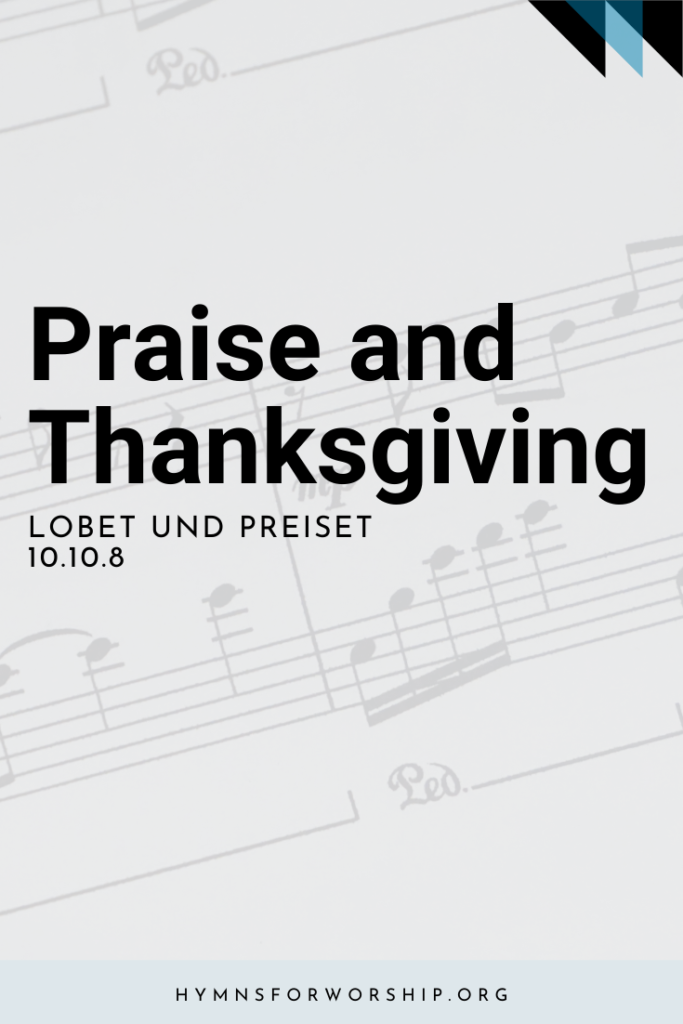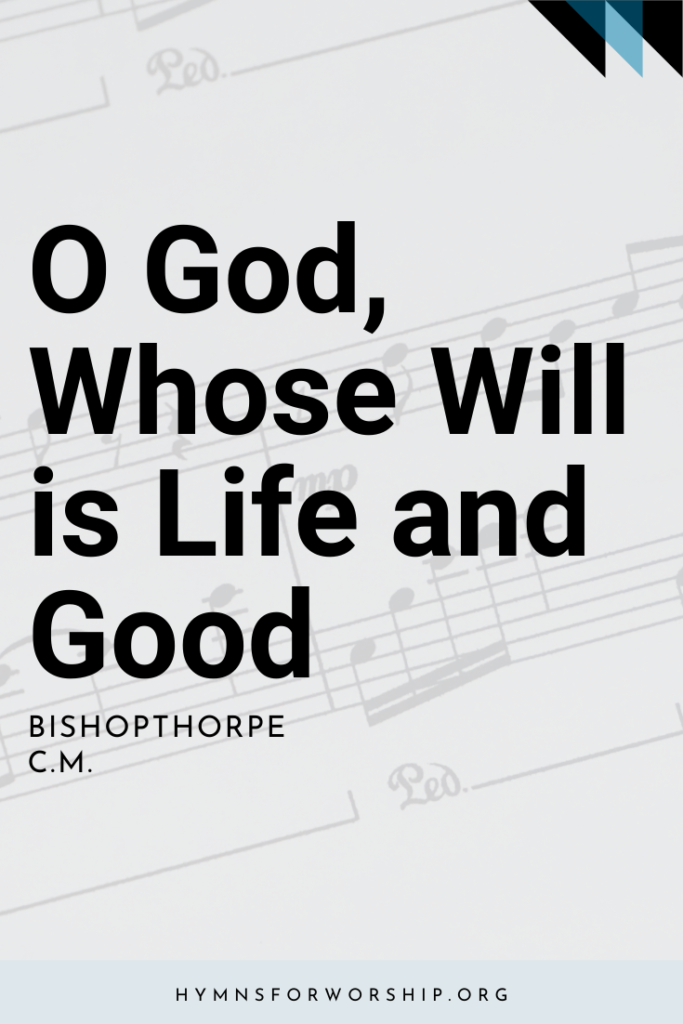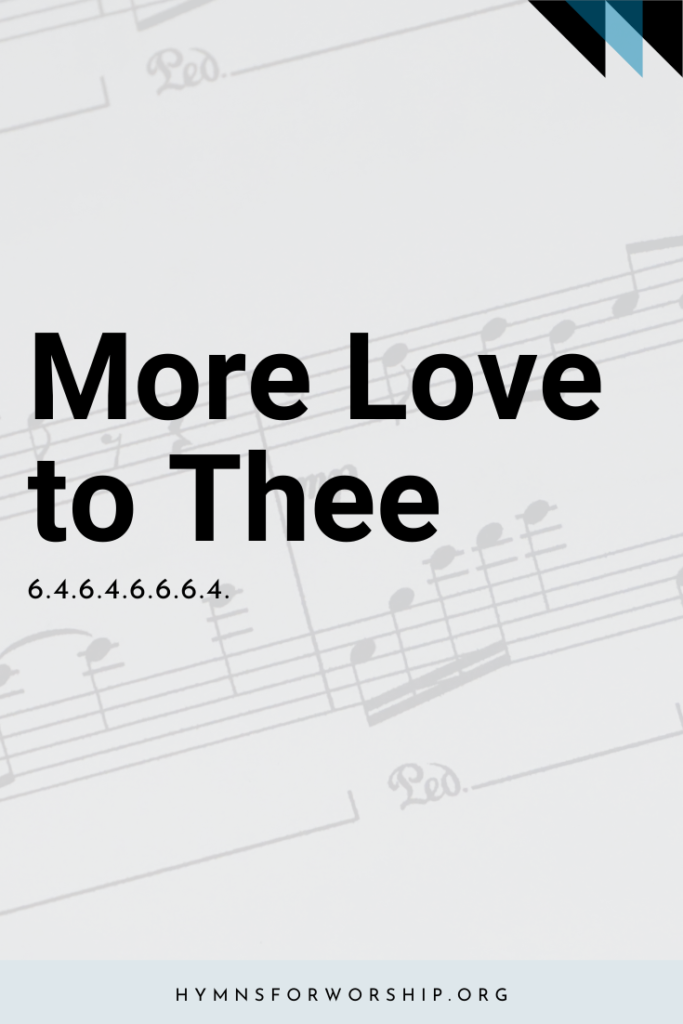GOSPEL >> INVITATION
SDAH 283
O Jesus, thou art standing,
outside the fast closed door,
in lowly patience waiting
to pass the threshold o’er:
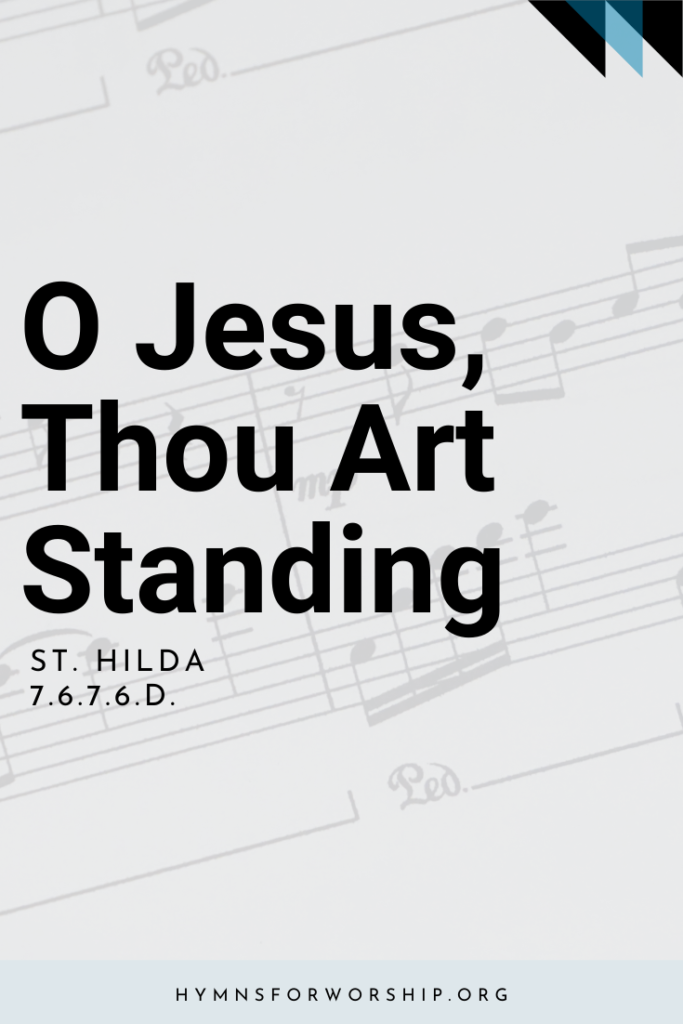

Text
1
O Jesus, thou art standing,
outside the fast closed door,
in lowly patience waiting
to pass the threshold o’er:
O shame, professing Christians,
his Name and sign who bear,
O shame, thrice shame upon us,
to keep him standing there!
2
O Jesus, thou art knocking;
and lo, that hand is scarred,
and thorns thy brow encircle,
and tears thy face have marred:
O love that passeth knowledge,
so patiently to wait!
O sin that hath no equal,
so fast to bar the gate!
3
O Jesus, thou art pleading
in accents meek and low,
“I died for you, my children,
and will you treat me so?”
O Lord, with shame and sorrow
we open now the door;
dear Savior, enter, enter,
and leave us never more.

Hymn Info
Biblical Information
(a) Rev 3:20 (b) Mark 15:17; Isa 52:14; Eph 3:19
Author
William Walsham How (1823-1897)
Year Published
1867
Hymn Tune
ST. HILDA
Metrical Number
7.6.7.6.D.
Composer
Justin H. Knecht (1752-1817)
Arranger
Edward Husband, 1871 (1843-1908)
Year Composed
1799
Hymn Score
Piano Accompaniment
Notes
Get to know the hymns a little deeper with the SDA Hymnal Companion. Use our song leader’s notes to engage your congregation in singing with understanding. Even better, involve kids in learning this hymn with our homeschooling materials.
This hymn was written by William Walsham How (1823- 1897; see Biographies). It appeared in Supplement to Psalms and Hymns, by Morrell and How, 1867, in six stanzas of four line each. It was not directly inspired by Holman Hunt’s famous painting The Light of the World, but both hymn and picture were based on the text “ Behold, I stand at the door, and knock” (Rev.3:20). How had read a moving poem by Jean Ingelow (1820-1897) entitled “Brothers and a Sermon,” in which the following lines occur:
“Behold!” said He, “I stand at the door and knock!
Open the door with shame, if ye have sinned.”
How scribbled his first draft of the hymn onto an odd scrap of paper, entitling it “Jesus at the Door,” and subsequently revised it slightly. The hymn now appears in 3 eight-line stanzas.
ST. HILDA was adapted by Justin Heinrich Knecht from a collection published in Stuttgart in 1799. It was further altered in 1871, and given this name by Edward Husband, who was born in 1843 in Hampshire, England. Husband was an amateur organist and composer, and vicar of Folkstone, Kent, where he died on January 3, 1908. Hilda was a person of royal blood who established a monastery near Whitby, Yorkshire, in the seventh century, and there revived the standards of the early Christian church.
Knecht was born at Biberach, north of the Lake Constance, on September 30, 1752, and was largely a self-taught musician. He learned to play the flute, oboe, trumpet, violin, and organ. In 1771 he was appointed music director and organist at Biberach. He had other talents also, for he was professor of literature in 1792 in the same town. In 1806 he was invited to Stuttgart to become the conductor of both court and theater orchestras. He returned to his hometown in 1808, and died there at age 65 on December 1, 1817. He wrote music for the stage, some vocal works, one symphony, and church music for organ and choir.

